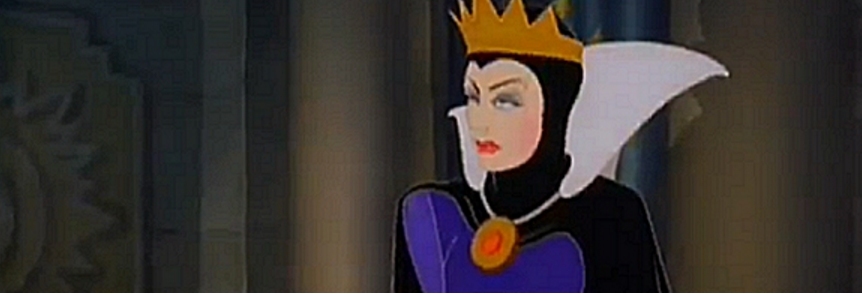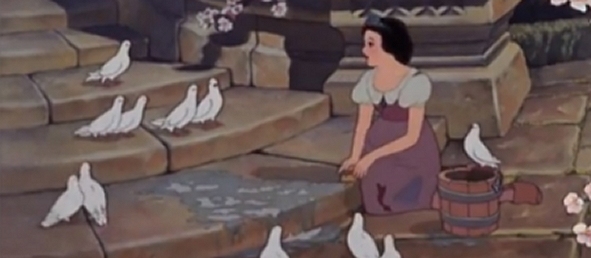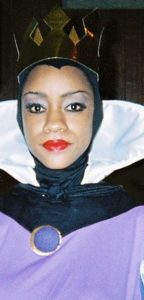
Walt Disney’s Snow White and the Seven Dwarfs is a classic princess story. And as I understand, it was the very first Disney Princess animated tale. Like many little girls, I was fascinated and watched with my eyes glued to the screen, but along with wonder and awe, I was a little bit bewildered.
I simply did not understand what was happening between Snow White, The Evil Queen, and the Magic Mirror.
When the Evil Queen questions the mirror about the identity of “the fairest of them all,” the mirror replies that while The Evil Queen is beautiful, someone else possesses a “gentle grace,” is more fair, and that that someone is Snow White.
I did not know the definition of “fair” in this context, was unaware of an equivalency between pale and beautiful, and certainly had no knowledge of Renaissance ladies, white powders, leeches, and such. But somehow, probably due to the opening credit scene, I got the idea that “fair” meant “pretty.” As such, I did not understand the reason behind the Queen’s anger, as I simply did not believe Snow White to be prettier than the Queen, or for that matter, even interesting.
The Queen was so-phis-ti-cated. She was everything that I wanted to be: grown up and in possession of glamourous, grown up clothes. Her voice was melodious and her speech strong. Her were hands long, graceful and slender, as were her fingernails. She wore red lipstick, purple eyeshadow, a pretty brooch and a long flowing cape that blew in the wind, and she moved with a confident determination. It’s interesting; as a child, I picked up on that. Go back and watch her descend down the staircase as she heads for her magic room. Who didn’t want to dress up and strut around like the Queen?
I thought Snow White, on the other hand was kind of plain, had a big, round head, puffy cheeks, and an uninteresting outfit. To be honest, I thought she was kind of dumpy. And in retrospect, I can say that she looked like a kid. For little kid me, watching fairy tale cartoons involved make believe and wishing I could be part of the fairy world, that I could fly and have super powers. Well, I already was a kid so you know, this was no fun. However on the plus side, I did like the way Snow’s collar “popped up” and can remember imitating the look by lifting the back of my round-collared uniform blouses, much to the chagrin of my teachers.
But still, I found Snow White to be kind of annoying: her voice was pitchy and she sat around singing and scrubbing floors. Who wanted to see this? I had chores to do at home, in real life. While I did enjoy washing dishes because it afforded me a chance to play in the water, and relished in learning to cook because again—it was a grown up thing to do—I really didn’t want to see Snow White’s sweeping, moping and dusting. Nothing glamourous here.
Just looking at this is tiring:
 :
:
And while I didn’t want Snow White to get hurt, was very sad after she fell ill from eating the poisoned apple, and thought the queen was mean to want to hurt her, I could not relate to Snow at all and found the incessant singing and goody-two-shoes routine to be unrealistic. I found it hard to believe that anyone could really be like this.
So, I sat through the long dwarf-centric scenes, anxiously waiting to see the queen again. It was such a bummer, because after the apple incident, I didn’t see her again!
My lasting impression of Snow White, without any analysis or fancy research, has always been that Snow White was weak. Recently, I skimmed through the cartoon again and noticed how Snow moved with a certain hesitancy, a timidness, as if she were afraid. I suppose that if I re-watched it with a critical eye, I could probably find numerous details which subconsciously influenced my reaction to the characters.
I imagine that various lessons can be gleaned from the story, among them that excessive vanity and pride are dangerous qualities and that good will triumph over evil.
But I didn’t get that message.
Little kid me thought queen had been wronged and that the mirror most certainly was a big fat liar!
Adult me feels the same, but is able to better express the thought: Insecurity and a reliance on an external force for validation caused the Queen’s demise, not vanity and pride.
The lesson is clear: look inward and have faith in yourself and in your capabilities; remain vigilant against those who aim to weaken your sense of self and your understanding of who you are.
In an attempt to crush your confidence, to instill doubt and uncertainty, “friends” will sometimes air negative opinions which devalue your achievements and provide a diminished assessment of your talents and of your fill-in-the-blank-with-any-desirable-attribute—and acceptance of such “analysis” will surely place you on the road to hell.
The Queen should not have been listening to that dopey mirror in the first pace. And unfortunately, though she most definitely was the fairest of them of them all, she was truly the weakest of them all as well.
(A republish of my piece from 2016.)

Update: The desire to dress up like the Evil Queen never went away…and as an adult, I did dress up like the Evil Queen! Purple eyeshadow and all!